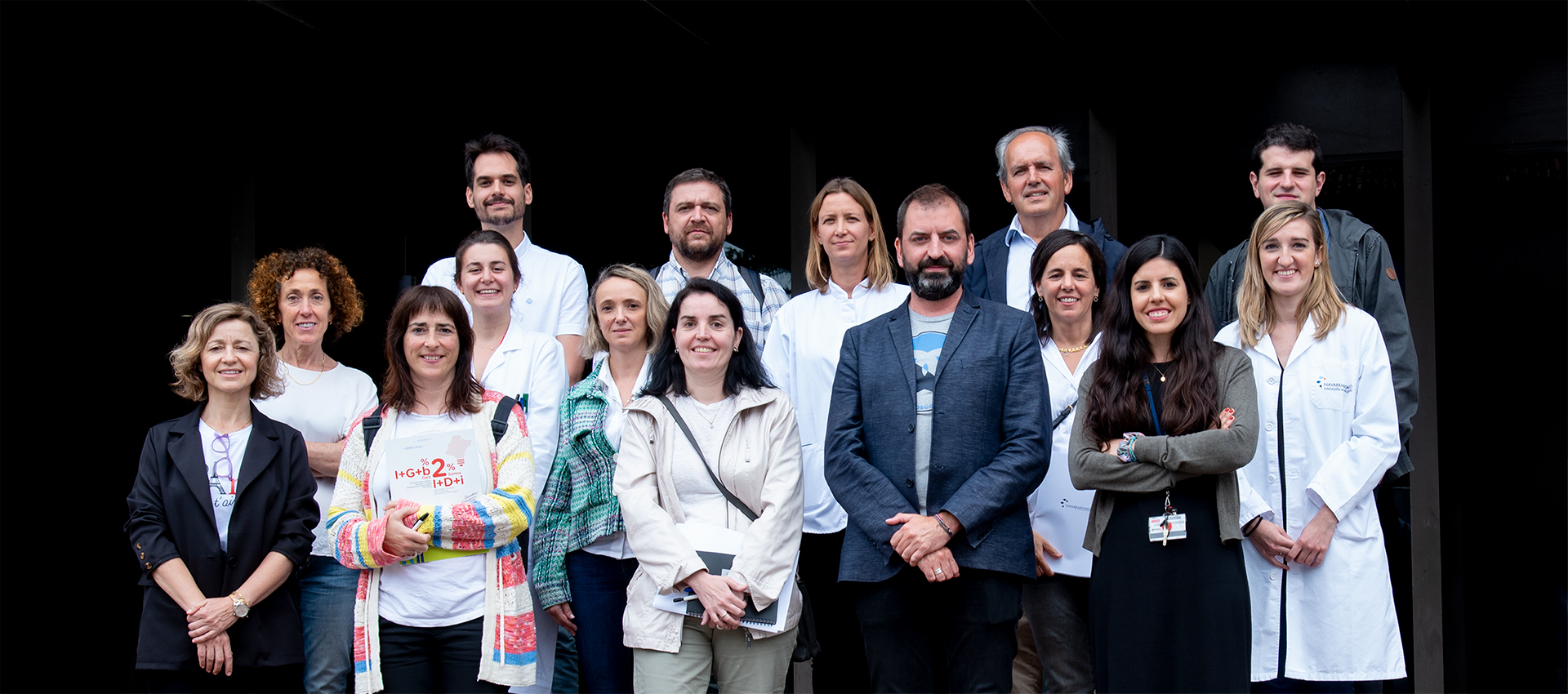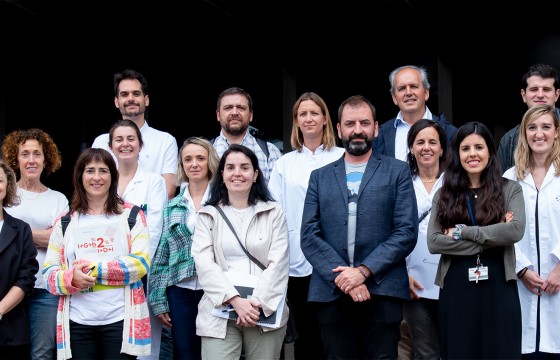
• The INNOLFACT project studies the direct relationship of the sense of smell with the immune system and neurodegenerative diseases such as Alzheimer's or Parkinson's
- Today, World Brain Day, the benefits of this strategic R&D project funded by Economic Development and carried out by a consortium led by Navarrabiomed have been announced.
The Navarrabiomed biomedical research centre has recently hosted the final meeting of the INNOLFACT strategic project. During the event, chaired by the General Director of Industry, Energy and Strategic Projects S4 Uxue Itoiz, the results of the study were announced. The meeting was attended by representatives of the various institutions that make up the consortium, a multidisciplinary working group that includes a representation of the Navarra health ecosystem, both from the private and public sides.
The consortium is led from the Clinical Neuroproteomics Unit of Navarrabiomed, under the direction of its principal investigator Enrique Santamaría Martínez. In all, 75 professionals belonging to the Geriatrics Unit from Navarrabiomed and the University Hospital of Navarra (HUN), Cima University of Navarra, University of Navarra Clinic, ADItech and the company Ojer Pharma.
The Department of Economic and Business Development, through the General Directorate of Industry, Energy and Strategic Projects S4, has financed the strategic R&D project INNOLFACT, which studies the direct relationship of the sense of smell with the immune system and neurodegenerative diseases. Thanks to this research, it will be possible to advance in an olfactory precision medicine capable of early diagnosis and developing immunomodulatory nasal therapies for the treatment of neurodegenerative diseases such as Alzheimer's or Parkinson's.
The project has received a total funding of 1,593,000 euros from the Department of Economic and Business Development of the Government of Navarra, through the call for Grants for strategic R&D projects 2020-2022. In addition, it should be noted that the consortium has submitted a continuation of the project to the call for Grants for strategic R&D projects 2023-2026 and has been selected as one of the projects that will receive funding.
Developing olfactory precision medicine
In an aging society, the scientific community believes that disruptive approaches are needed to generate innovative tools to detect and diagnose neurodegenerative diseases early. Previous studies carried out in Navarra demonstrate the direct association of the sense of smell with the immune system and its impact on cognitive and motor functions. The INNOLFACT project delves into this field of research to characterize in depth the olfactory-immune system-brain axis and, likewise, to decipher the immunological molecular mechanisms related to smell involved in the development of neurodegenerative diseases.
Specifically, the two most prevalent neurodegenerative diseases have been addressed, which are Parkinson's disease and Alzheimer's disease. Comprehensive biochemical, olfactory, immunological, cognitive and imaging studies have been carried out in more than 300 patients, in order to verify the relationship between smell, the immune system and cognition of the participants.
This connection has also been investigated through the use of an immunostimulating odorant such as menthol, analysing its impact on the immune system and cognitive ability in animal models. It has been observed that short and repeated exposures to the menthol aroma regulate the immune response in mice and significantly improves their cognitive ability, demonstrating how it is possible to modulate brain activity through the olfactory pathway.
On the other hand, the Navarrabiomed research units of Clinical Neuroproteomics and Geriatrics have launched, in collaboration with the University Hospital of Navarra, a study to examine the effects of controlled and supervised olfactory training on olfactory function, in older people, and to better understand the relationship between smell, the immune system and brain function in aging. When subjecting older people to olfactory training, it has been proven that repeated exposure to odorants leads to increased olfactory sensitivity. It is a non-invasive technique without significant side effects that has proven effective in some patients with olfactory dysfunction.
The INNOLFACT project has generated a database with information associated with more than 250 variables that will be analysed in a second phase of development with artificial intelligence and machine learning technology, with the aim of generating predictive algorithms of clinical impact.
Research with a gender perspective
It is known that diseases associated with aging, such as Alzheimer's disease and Parkinson's disease, occur differently in men and women, among other reasons, due to differences in genetic risk factors, the immune system and the progression of the pathology itself. The INNOLFACT consortium has demonstrated how olfactory metabolism differs between men and women with Alzheimer's or Parkinson's, identifying, using olfactory proteomics techniques, hundreds of proteins with differential behaviour between sexes. This information is essential, in order to establish a precision olfactory medicine without gender bias, with personalized diagnoses and treatments beneficial for the whole of society.




